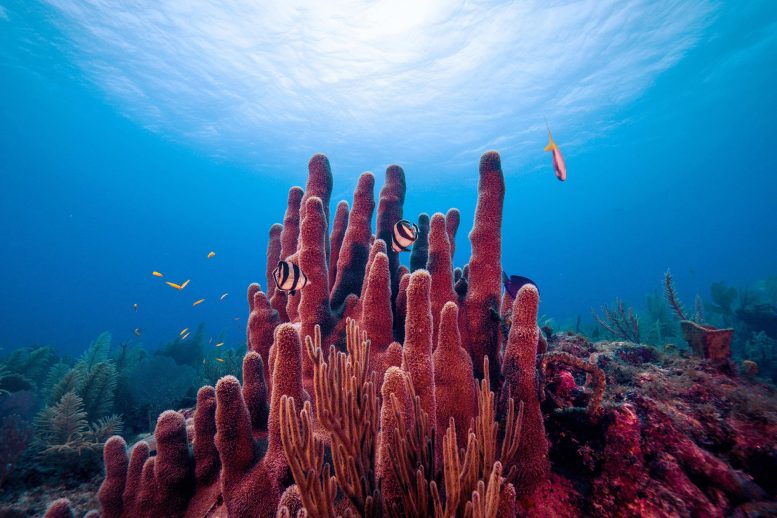Slimy Microbes Discovered That Could Help Keep Coral Reefs Healthy
4 Years, 3 Months, 2 Days, 20 Hours, 57 Minutes ago

The bacteria scrub out nitrogen, potentially defending against certain nutrient overloads.
Corals have evolved over millennia to live, and even thrive, in waters with few nutrients. In healthy reefs, the water is often exceptionally clear, mainly because corals have found ways to make optimal use of the few resources around them. Any change to these conditions can throw a coral’s health off balance.
Now, researchers at MIT and the Woods Hole Oceanographic Institution (WHOI), in collaboration with oceanographers and marine biologists in Cuba, have identified microbes living within the slimy biofilms of some coral species that may help protect the coral against certain nutrient imbalances.
The team found these microbes can take up and “scrub out” nitrogen from a coral’s surroundings. At low concentrations, nitrogen can be an essential nutrient for corals, providing energy for them to grow. But an overabundance of nitrogen, for instance from the leaching of nitrogen-rich fertilizers into the ocean, can trigger mats of algae to bloom. The algae can outcompete coral for resources, leaving the reefs stressed and bleached of color.
By taking up excess nitrogen, the newly identified microbes may prevent algal competition, thereby serving as tiny protectors of the coral they inhabit. While corals around the world are experiencing widespread stress and bleaching from global warming, it seems that some species have found ways to protect themselves from other, nitrogen-related sources of stress.
“One of the aspects of finding these organisms in association with corals is, there’s a natural way that corals are able to combat anthropogenic influence, at least in terms of nitrogen availability, and that’s a very good thing,” says Andrew Babbin, the Doherty Assistant Professor in Ocean Utilization in MIT’s Department of Earth, Atmospheric and Planetary Sciences. “This could be a very natural way that reefs can protect themselves, at least to some extent.”